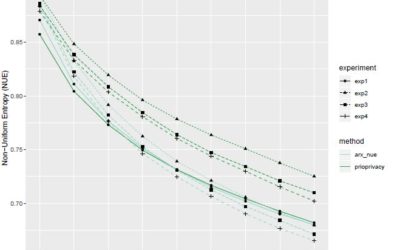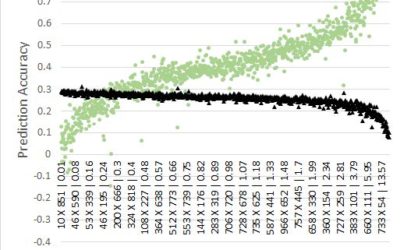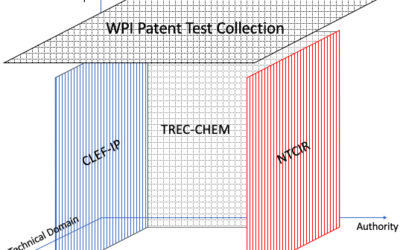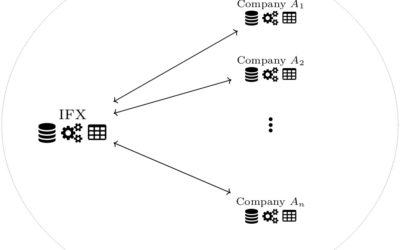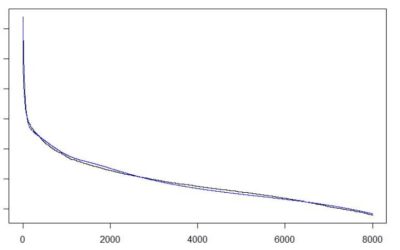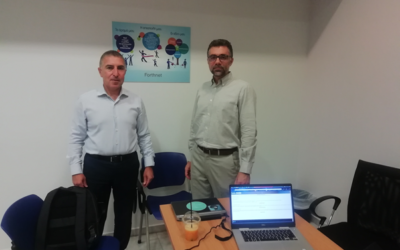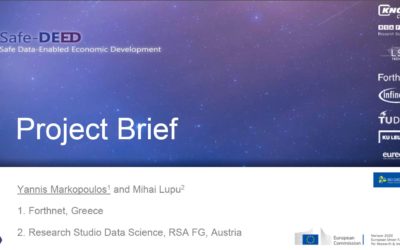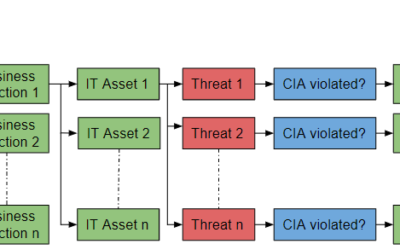OUR BLOG
PrioPrivacy: A Local Recoding K-Anonymity Tool for Prioritised Quasi-Identifiers
Alexandros Bampoulidis, Ioannis Markopoulos, Mihai Lupu (2019) Extensive research in de-anonymisation has shown that in datasets not containing any personally identifying information (PII)—name, address, etc.—individuals can be identified through quasi-identifiers...
Chance influence in datasets with a large number of features
Abdel Aziz Taha, Alexandros Bampoulidis, Mihai Lupu (2019) Machine learning research, e.g. genomics research, is often based on sparse datasets that have very large numbers of features, but small samples sizes. Such configuration promotes the influence of chance on...
A Horizontal Patent Test Collection
Mihai Lupu, Alexandros Bampoulidis, Luca Papariello (2019) We motivate the need for, and describe the contents of a novel patent research collection, publicly available and for free, covering multimodal and multilingual data from six patent authorities. The new patent...
Kickstarting MPC ideas with FRESCO
Fabian Schmid, TU Graz, WP 5 We developed a Multi-Party Computation (MPC) project using FRESCO. First, we had a privacy-preserving auction in mind. In such a scenario, everyone could bid in private, and only the highest bidder and bid would become known to the...
Qualified Synthetic Data
Alexander Georg, Infinion, WP 7 Synthetic data make an important contribution to data analysis and research. They are commonly described as “any production data applicable to a given situation that are not obtained by direct measurement” (Parker, 1984). Qualified...
The first Safe-DEED demonstrator in Forthnet
Yiannis Markopoulus, Forthnet, Leader WP6 In the first version of the Safe-DEED demonstrator we introduce a web Graphical User Interface (GUI), designed to provide tools for dataset linkage without running the risk of data leakage. The GUI accommodates three main...
Legal challenges in the machine-to-machine context
Alessandro Bruni, KU Leuven, Leader WP3 One of the most crucial EU legislative initiatives that will be taken into account in the development of the Safe-DEED project is the European Electronic Communications Code (EECC). The EECC, one of the ten Digital Single Market...
Assessing the applicability of machine learning techniques on data sets
Luca Papariello, Mihnea Tufis, EURECAT, WP4 An important component of the Safe-DEED project is concerned with data valuation. This component receives a data set (or a snapshot thereof) and returns an estimate for the value of a data set. Assigning a value to...
Safe-DEED at the BDVA summit in Riga
From 26 - 28 June the BDVA Meetup 2019 took place in Riga. Yannis Makropoulos from Forthnet and Mihai Lupu from RSA FG represented the Safe-DEED project there. In their talk they presented the vision of Safe-DEED and talked about the progress of the project. You can...
Threat Modelling for Secure Multi Party Computation Enhanced Distributed Data Marketplaces
Tobias Fiebig, TU Delft, WP2 Within Safe-DEED we are dealing with Secure Multi Party computation for distributed data market places. Within Workpackage2, we want to create business models to support companies in adopting MPC within their business. So what do...

